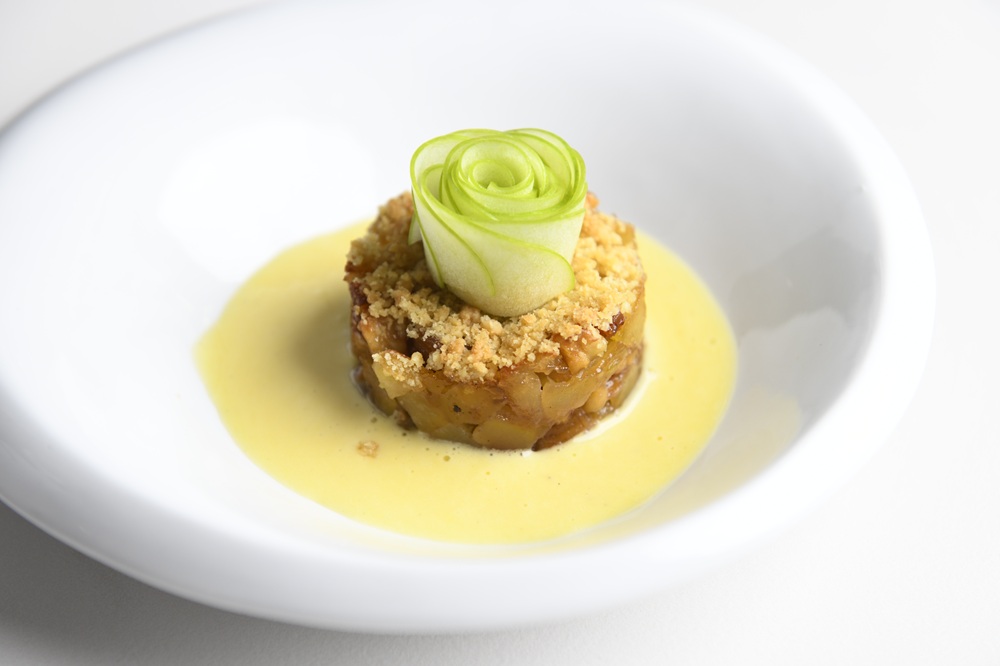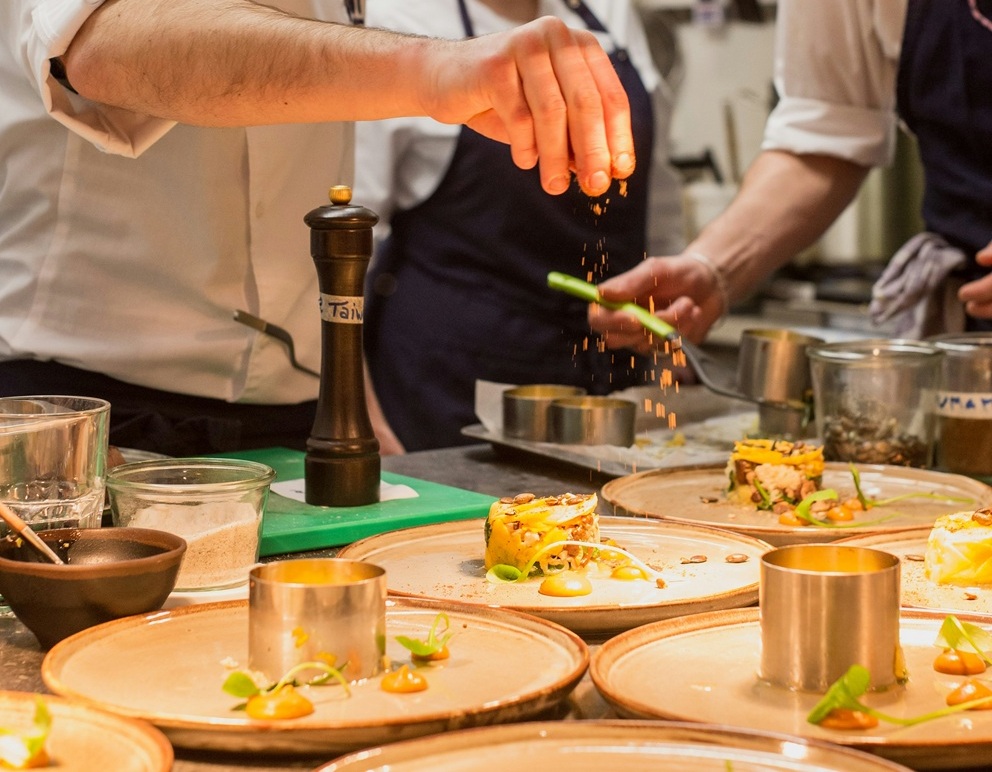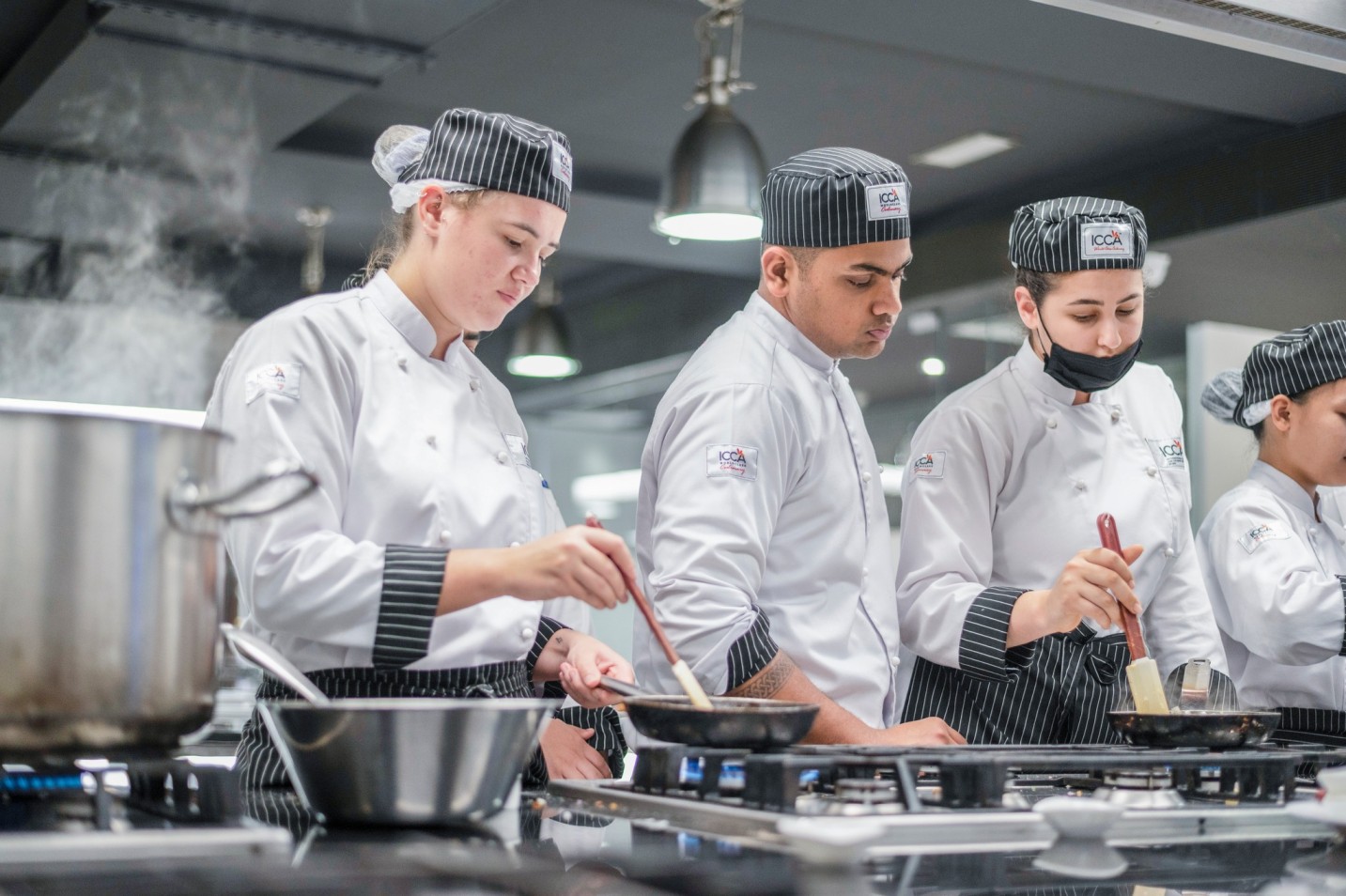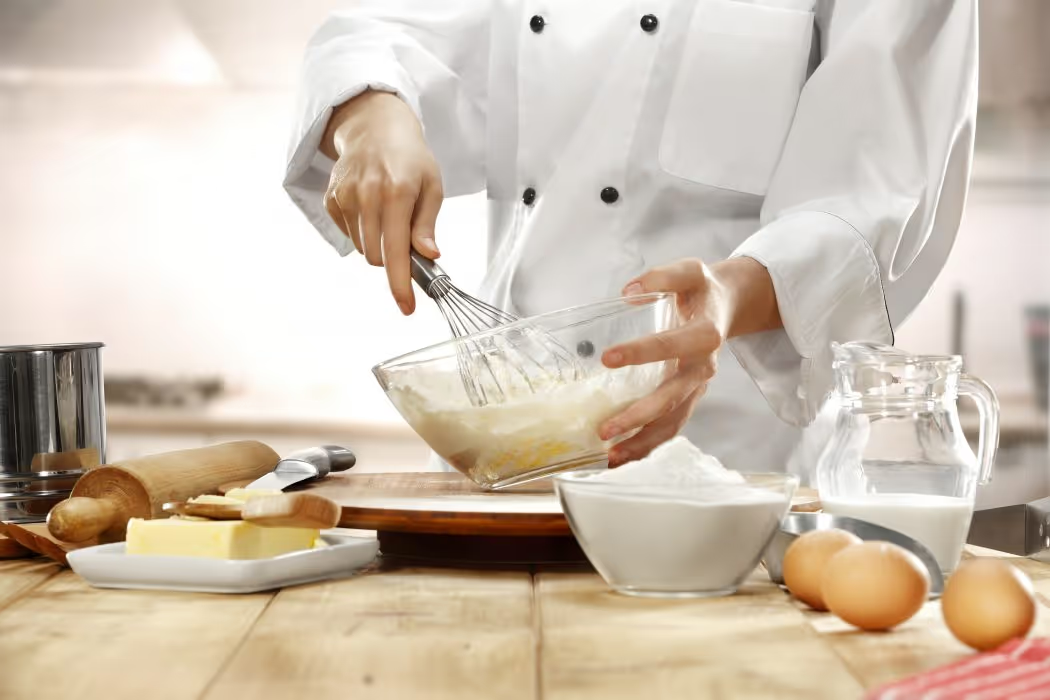Have you ever wished your oven could know exactly when dinner is done and your fridge could suggest a recipe based on what’s inside? What if your kitchen could anticipate your next move—help you cook faster, better, and with no guesswork?
That dream is no longer sci-fi. Artificial intelligence is transforming kitchens into intelligent spaces where ovens identify food, fridges track groceries, and robotic assistants manage chopping and stirring. But what does this mean for home cooks? Can smart kitchen gadgets actually improve your everyday cooking, or are they just pricey toys?
In this blog, we’ll explore how AI is reshaping the kitchen—highlighting smart cooking tools available now, the tangible benefits of using them, and how you can build your own connected kitchen system without feeling overwhelmed.
1. How AI Is Changing the Kitchen
At its core, artificial intelligence in the kitchen means using machine learning, real-time sensors, and smart integrations to reduce guesswork and save time.
What AI-equipped kitchen tools can do:
- Recognize ingredients via cameras (e.g., smart ovens)
- Auto-adjust cooking parameters for consistent results
- Recommend recipes based on inventory, preferences, or dietary needs
- Track expiration dates and reduce food waste
- Provide hands-free guidance via voice assistants
This shift is meaningful. Smart tools bring professional-level precision and convenience into your home kitchen—making cooking not only easier but more reliable. In essence, AI turns cooking into a science-driven, stress-free experience.
2. Smart Kitchen Tools You Can Buy Today
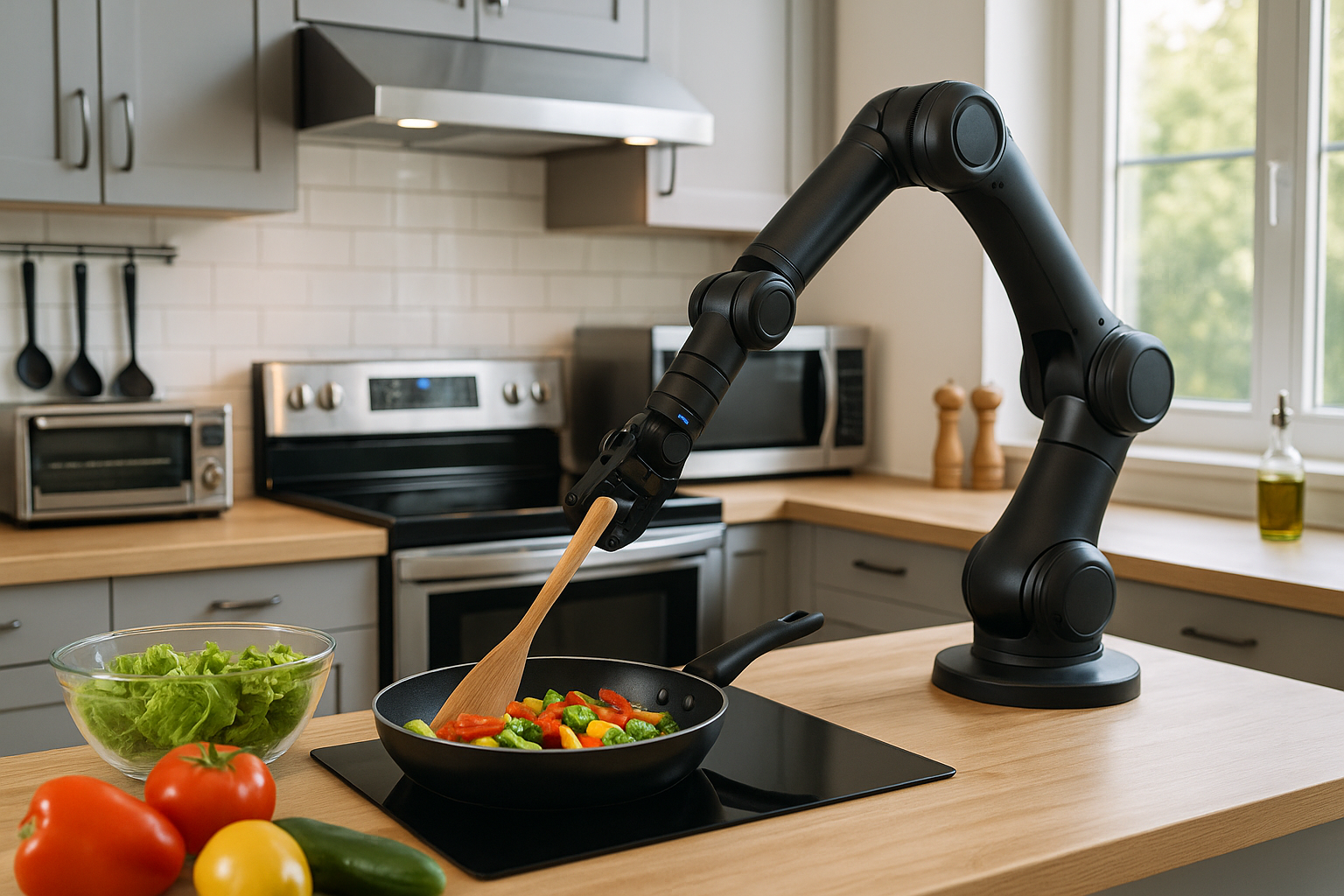
Here’s a breakdown of smart cooking tools worth exploring in 2025:
Smart Ovens with Food Recognition
Devices like the June Intelligent Oven and Chef iQ Smart Oven use internal cameras and food databases to identify your item—whether it’s salmon, cookies, or vegetables—and automatically adjust temperature, cooking time, and humidity settings. They also sync with guided recipe apps and voice control.
Benefit: “Set it and forget it”—perfect for multitasking cooks who value precision.
AI-Powered Refrigerators
The Samsung Family Hub and LG ThinQ Fridge can scan barcodes or read food labels to track inventory. They notify you when groceries are nearing their use-by date, suggest recipes using what’s inside, and even let you check your fridge contents from your phone.
Benefit: Less food waste and more meal inspiration—right from the fridge.
Precision Cooking Tools
Sous-vide devices, notably the Anova Precision Cooker, maintain precise temps for consistent results, while smart scales synch with apps to provide exact ingredient weights—ideal for baking or meal prep.
Benefit: Sous-vide steak that’s restaurant-quality and accurately portioned ingredients.
AI-Enhanced Grills & Robotic Assistants
The Brisk It Zelos 450 AI Grill uses built-in sensors and AI to recommend cooking methods and timing. Designs like Moley Robotics offer hands-free prep and cooking with robotic arms for chopping, stirring, and plating.
Benefit: You specify what you want, and intelligent cooking systems handle it with minimal oversight.
3. Key Benefits of Smart Cooking Tools
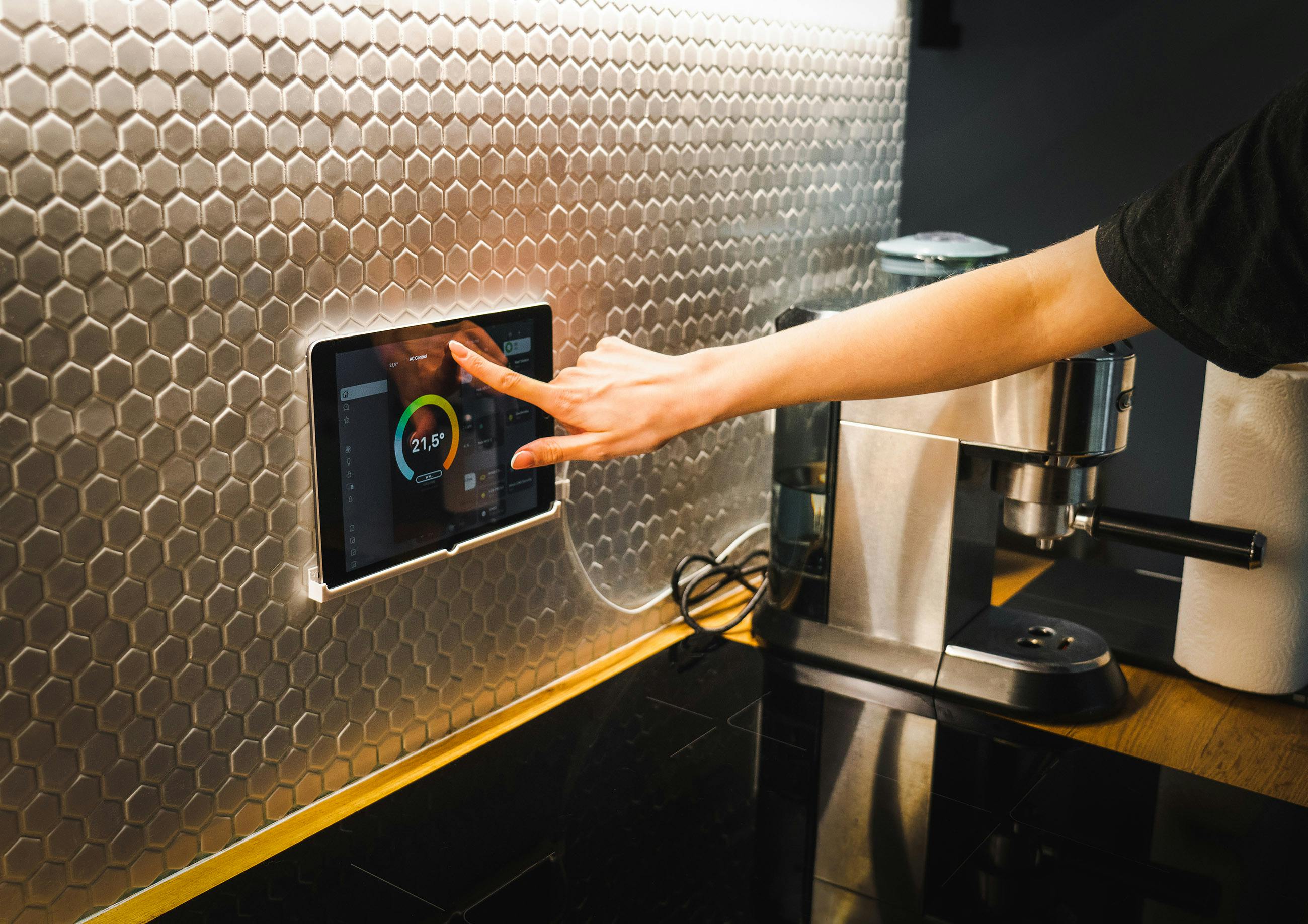
So why go smart?
Precision and Consistency
These devices remove guesswork. Whether perfectly puffed bread or precisely sous-vided salmon, AI tools deliver restaurant-quality results every time.
Time Savings and Convenience
Smart ovens preheat and cook autonomously, while smart fridges combine meal planning with voice control. You’re freed up to focus elsewhere—even multitask in another room.
Food Waste Reduction
When your fridge tells you that milk’s expiring and your app suggests a smoothie recipe, you minimize waste—and save money on groceries.
Personalized Cooking
AI systems adapt to your preferences and dietary needs. They can tailor recipes to low-sodium, gluten-free, vegan or high-protein diets—saving you time and effort.
4. How to Start Building a Smart Kitchen
You don’t have to overhaul your kitchen overnight to get started.
- Start simple: Choose one primary device—perhaps a smart oven or sous-vide cooker—and test its compatibility with your cooking style.
- Voice assistant integration: Connect devices to Alexa, Google Assistant, or SmartThings for hands-free control.
- Ensure connectivity: Check your Wi-Fi reaches your kitchen reliably—smart tools depend on stable internet.
- Expand gradually: Add complementary tools like a smart fridge, precision scale, or robotic prep tools when you’re ready.
- Stay updated: Most devices get periodic firmware and app updates with new recipes or improved performance.
This stepwise approach helps you adopt AI-powered cooking without feeling overwhelmed—or breaking the bank.
5. Challenges and Considerations
Smart kitchens offer amazing potential, but they also come with trade-offs:
Cost
AI appliances are premium-priced—but prices are dropping as adoption grows. Consider your ROI in time savings and food quality.
Data Privacy
Some smart appliances collect usage data. Read privacy policies and choose brands that prioritize data security.
Learning Curve
Getting comfortable with voice controls, apps, and touchscreen interfaces takes time—but the benefits quickly outweigh the initial confusion.
Compatibility
Not all devices play well together. Choose products aligned with your preferred smart-home ecosystem—Alexa, Google, or Apple's HomeKit.
6. What the Future Holds
AI kitchens of tomorrow promise even more exciting innovations:
- Modular robotic kitchen systems that automate most cooking steps
- 3D food printing for texture-controlled, nutrient-packed meals
- Hyper-personalized meal planning, integrating AI with fitness, health, and taste data
- Kitchen-assistant robots capable of chopping, stirring, grilling, and plating without human input
Soon, kitchens might be your most intelligent room, blending data-driven cooking and hands-free prep with ease.
The rise of AI in the kitchen isn’t just a technology trend—it’s a revolution that’s making home cooking smarter, faster, and more reliable. Whether you’re tired of overcooked roasts, looking to reduce food waste, or simply curious about the latest cooking tech, intelligent kitchen tools can deliver measurable benefits.
Ready to cook smarter? Start with one AI-powered tool, explore its integration options, and grow your kitchen ecosystem gradually. Share your experiences, questions, or dream gadgets in the comments—it’s time to cook with confidence.



